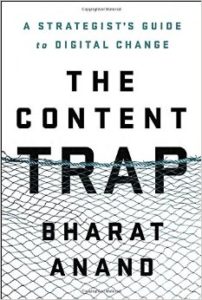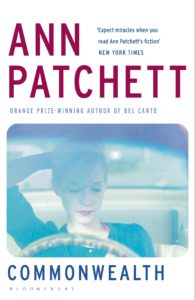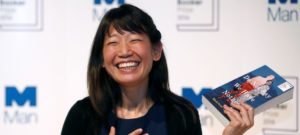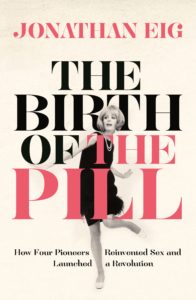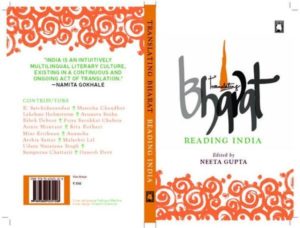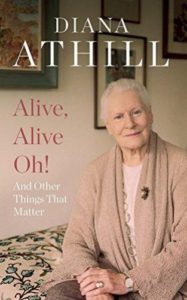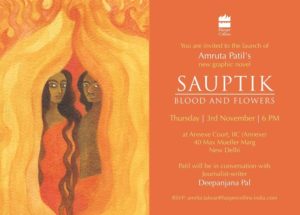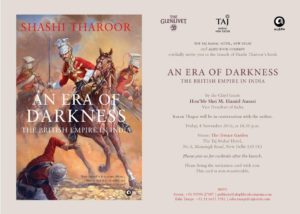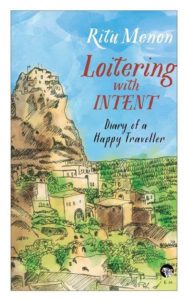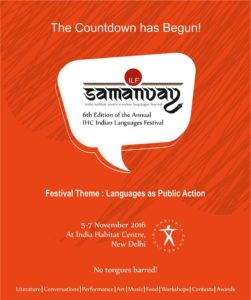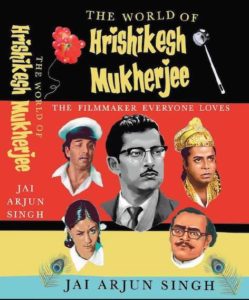( My monthly column, “PubSpeak”, in BusinessWorld online has been published. Here is the original http://www.businessworld.in/news/economy/permit-to-read/1072156/page-1.html. This time it is on permission to read.)

I heard a lovely story (and true) from Aditi Maheshwari, publisher, Vani Prakashan. (Vani Prakashan have been publishing in Hindi for 55 years.) They participate in book fairs around the country. One of the biggest events for Vani Prakashan is to set up a large stall at the Patna book fair, with a long walk between the entry and exit points. At one of these events, Aditi noticed a married couple browse through their stalls. The wife paused when she spotted the Hindi translation of Taslima Nasreen’s Lajja. She nudged her husband and said, “I have heard about this book. I read a review in a women’s magazine. Could you please buy it for me?” The husband looked appalled and said, “No. I will not. This is a book I will not allow in the house. If you buy it and read it, I will throw you out of the house.” And then he pulled his wife away.
She followed him as she was used to. Aditi saw this exchange. She quickly picked up a copy of the book, slipped it into a paper envelope, rolled it up in a catalogue and asked a colleague to slip it into the wife’s hand as they were exiting out of the stall. A few weeks later Aditi received a few lines scribbled on a postcard from the woman. She said, “Thank you for the book. My life has changed after reading it. I did not realise that if anyone touches my body without my consent can be construed as rape, even if it is my husband demanding his ‘right’ at night. Could you please send me the author’s address? I would like to write to her as well.”
Aditi did. A couple of months later the publisher received an ecstatic phone call from Taslima Nasreen telling her about the beautiful note of 20-25 lines that had been sent to her by the wife in Bihar. The book had stuck a chord. (And it must have with many more. Since the Hindi translation was published in 1996, Vani Prakashan has sold over 5,00,000 copies of Lajja reasonably priced at Rs 150. The other Taslima Nasreen titles that they have published have also had equally extraordinary print runs.)
In order to access women readers women’s presses were established. Some of the better known names worldwide are Virago, Kali for Women, Zubaan, Women Unlimited, Persephone Books, Spinifex Press, Modjaji Books, and The Feminist Press. When these publishing houses first began — inevitably all of them were established after 1970 — they were not considered too seriously by their peers in publishing. The notion of creating a distinct list for women was unheard of, but a publishing house dedicated to creating books for women, by women and with women readers in mind was inconceivable.
The Game Changers
Slowly over a period of time it became obvious that this was a strong and healthy market segment. After about two to three decades mainstream publishing houses recognising the potential announced their own imprints dedicated to women or began collaborations. In India, Zubaan entered into a co-publishing agreement with Penguin Books. But as Urvashi Butalia, publisher, Zubaan (and co-founder, Kali for Women), said in an interview in April 2013: “Around the time Kali for Women came to be, there were very many feminist presses globally, with Virago being the most prominent. There are now only a handful; most of them have either scaled back or shut shop, and part of the reason has to do with feminism going ‘mainstream’.
There is a moment in Chitra Banerjee Divakurni’s Oleander Girl when Korobi advises her hostess in America, Seema Mitra, how to flee New York and return to India, in time to have her baby in Calcutta. “Flee” because her husband consumed completely by his addiction to gambling is being unreasonable and unable to look after her. Korobi assists the young, heavily-pregnant Seema to hatch a plan to leave New York City for India without the husband even getting a whiff of it. The plan is ridiculously simple and Seema escapes easily. Oleander Girl has been published in India by Penguin Books India, but Divakaruni has been writing for many years, with many “mainstream” publishing houses, around the world, some of her books have been adapted into films — notably, the Mistress of Spices had Aishwarya Rai acting in it. The strength of Divakaruni’s writing lies in the finely etched women characters that populate her stories. Her retelling of the Mahabharata from the perspective of Draupadi in The Palace of Illusions continues to sell extraordinarily well. In India alone the sales in hardback and paperback have crossed 25,000 copies (probably is higher). It is said that the commercial success of E.L. James’ Fifty Shades of Grey can be attributed predominantly to the word-of-mouth recommendation by women readers who initially read the book on their electronic devices, reading in “secret” albeit in public spaces say, while commuting since the book cover was not visible. So, they were able to read, share and discuss erotic fiction without being condemned for the act of reading, let alone the genre. This anecdotal evidence suggests that there is a growing market amongst women readers.
The format in which it is delivered is immaterial, but it is the accessibility of it that is crucial when connecting with women readers. It could be in printed volumes, easy to handle slim volumes of large texts, creating audio books that are delivered via electronic mediums including fixed landlines and mobile phones, getting books to many book clubs that exist and meet regularly, selling books via newspaper vendors (as Harlequin is exploring in Kerala), and definitely marking the books at price points that are affordable for women, even if it means exploring a membership with the publisher or paying in installments for the books.
Many women now have expendable income especially those who are entering the workforce, young and single whereas the priority for many married women continues to be the family. But the fact is many do read and want to read. A significant fact since it affects the bottomline of publishing too. News about publishing is generally dominated by articles on digital and print conversations, self-publishing, emerging markets, language publishing, children’s and YA literature, new forms of electronic readers, the collapse of brick-and-mortar bookstores – all very relevant aspects of publishing but slowly the conversations about women readers as a distinct market is no longer centre stage.
Society Versus The Individual
Unfortunately (or fortunately) the act of women reading still makes news. It still upsets people. Akshay Pathak, writer, wrote in an article last month, “My mother was the only person in the family who had read some books. But she was married into a family where reading books was forcefully discouraged. And so gradually she stopped. Had to.” It is still not uncommon for women who are reading at home to hear, “Why are you lolling? Isn’t there any work to be done?”
Muneeza Shamsie, literary journalist, in her contribution to Fifty Shades of Feminism writes “… the last word belongs to my mother. [Jahanara Habibullah] In her last years, to try and cope with my father’s terminal illness, she began her very first book, a memoir. She was 84 when it was published as an English translation and later in the original Urdu. In 2003, after she died, I found stacks of Urdu classics – often written by her kinsmen – tucked away in the lower bookshelves. To me, my mother’s tenacity, her love for a literature and language that neither her husband nor her children could read, embody the suppressed voices of women. But my mother’s tale is one of triumph. On the last night of her life, she rang my paternal aunt Tazeen and said “All these years I was turned into a housewife and made useless! I should have been a writer!” Such a self-revelation, at 86, a few hours before dying! By her bedside table sat Kamila’s novels and my anthologies – a far cry from secretarial college where success depended on reproducing accurately someone else’s words.” 
There is a fabulous poster created during the women’s movement in India by an NGO, Asmita. It shows a woman dressed in a sari sitting in a chair, with her feet up and reading a book. The television is on and she has a couple of books open and scattered on the floor besides her. Basically she is looking very relaxed and is obviously in her own private space — a dream for many. But as William St. Clair says in The Reading Nation in the Romantic Period, “Women’s reading, at any rate women’s reading of the upper-income groups, the commonplace books suggest, was by no means limited to writings regarded as suitable for women.” A fact that holds true two centuries later.
11 Sept 2013
Jaya Bhattacharji Rose is an international publishing consultant and columnist
@JBhattacharji
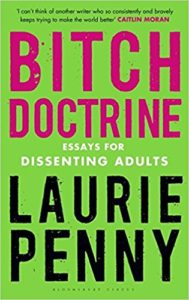 11 October 2017 is International Girl Child’s Day, declared by the United Nations. The idea is to raise awareness of issues facing girls internationally surrounding education, nutrition, child marriage, legal and medical rights. The celebration of the day also “reflects the successful emergence of girls and young women as a distinct cohort in development policy, programming, campaigning and research.”
11 October 2017 is International Girl Child’s Day, declared by the United Nations. The idea is to raise awareness of issues facing girls internationally surrounding education, nutrition, child marriage, legal and medical rights. The celebration of the day also “reflects the successful emergence of girls and young women as a distinct cohort in development policy, programming, campaigning and research.”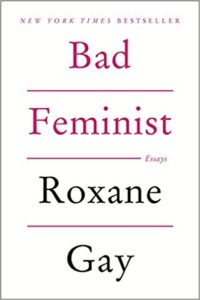 But what happens when the young woman gains consciousness in a world where many of the structures are still very patriarchal; they inform and dictate many relationships and policies. Feminism, particularly women’s movements, of the 1960s onwards have influenced young girls world over. Women learned how to express themselves in a manner that enabled them to be heard. Slowly and steadily the impact was discernible in different spheres. In publishing too for the first time women’s presses were being set up. Virago and Kali for Women were established. The magazine Ms was launched by Gloria Steinem. Women in Publishing was established at this time by Liz Calder, one of the co-founders of Bloomsbury. In India for the first time Status of Women Report ( 1975) was released. There was definitely a shift in perceptions and constructive action was being taken. Soon publishers worldwide recognised the growing importance of giving a space in their lists to women’s books — either by women or for women. In living memory there has been a dramatic shift with now there being more and more women authors being published.
But what happens when the young woman gains consciousness in a world where many of the structures are still very patriarchal; they inform and dictate many relationships and policies. Feminism, particularly women’s movements, of the 1960s onwards have influenced young girls world over. Women learned how to express themselves in a manner that enabled them to be heard. Slowly and steadily the impact was discernible in different spheres. In publishing too for the first time women’s presses were being set up. Virago and Kali for Women were established. The magazine Ms was launched by Gloria Steinem. Women in Publishing was established at this time by Liz Calder, one of the co-founders of Bloomsbury. In India for the first time Status of Women Report ( 1975) was released. There was definitely a shift in perceptions and constructive action was being taken. Soon publishers worldwide recognised the growing importance of giving a space in their lists to women’s books — either by women or for women. In living memory there has been a dramatic shift with now there being more and more women authors being published.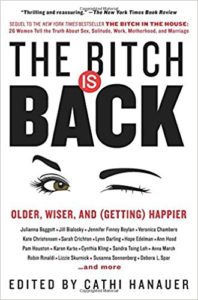 In this context there are three collections of essays that I read recently — Bad Feminist ( Roxane Gay), Bitch Doctrine: Essays for Dissenting Adults ( Laurie Penny) and The Bitch is Back ( ed. Cathi Hanauer). These three books can be yoked together not only for their feminism but also that they mark the manner in which the feminists conduct themselves, the choices they make and how they evolve as individuals. Some of the older feminists as those sharing their experiences in their essays included in The Bitch is Back comment upon living their feminism by negotiating their spaces regularly and thereafter making peace with the decisions made. The common thread running through all these essays is how challenging at times it can be to find the same sense of equality and entitlement that men of diverse backgrounds seem to have in all societies. Women have to negotiate their spaces and stand by their choices, at times it is not easy, but feminism has granted this at least — the space to negotiate and as some of the older women discover it is also about making peace with having your own identity. There are two particularly fine essays that encapsulate and address many of these issues in The Bitch is Back — “Trading Places: We both wanted to stay home. He won. But so did I.” by Julianna Baggott and “Beyond the Myth of Co-Parenting: What we lost — and gained — by abandoning equality” by Hope Edelman.
In this context there are three collections of essays that I read recently — Bad Feminist ( Roxane Gay), Bitch Doctrine: Essays for Dissenting Adults ( Laurie Penny) and The Bitch is Back ( ed. Cathi Hanauer). These three books can be yoked together not only for their feminism but also that they mark the manner in which the feminists conduct themselves, the choices they make and how they evolve as individuals. Some of the older feminists as those sharing their experiences in their essays included in The Bitch is Back comment upon living their feminism by negotiating their spaces regularly and thereafter making peace with the decisions made. The common thread running through all these essays is how challenging at times it can be to find the same sense of equality and entitlement that men of diverse backgrounds seem to have in all societies. Women have to negotiate their spaces and stand by their choices, at times it is not easy, but feminism has granted this at least — the space to negotiate and as some of the older women discover it is also about making peace with having your own identity. There are two particularly fine essays that encapsulate and address many of these issues in The Bitch is Back — “Trading Places: We both wanted to stay home. He won. But so did I.” by Julianna Baggott and “Beyond the Myth of Co-Parenting: What we lost — and gained — by abandoning equality” by Hope Edelman.

